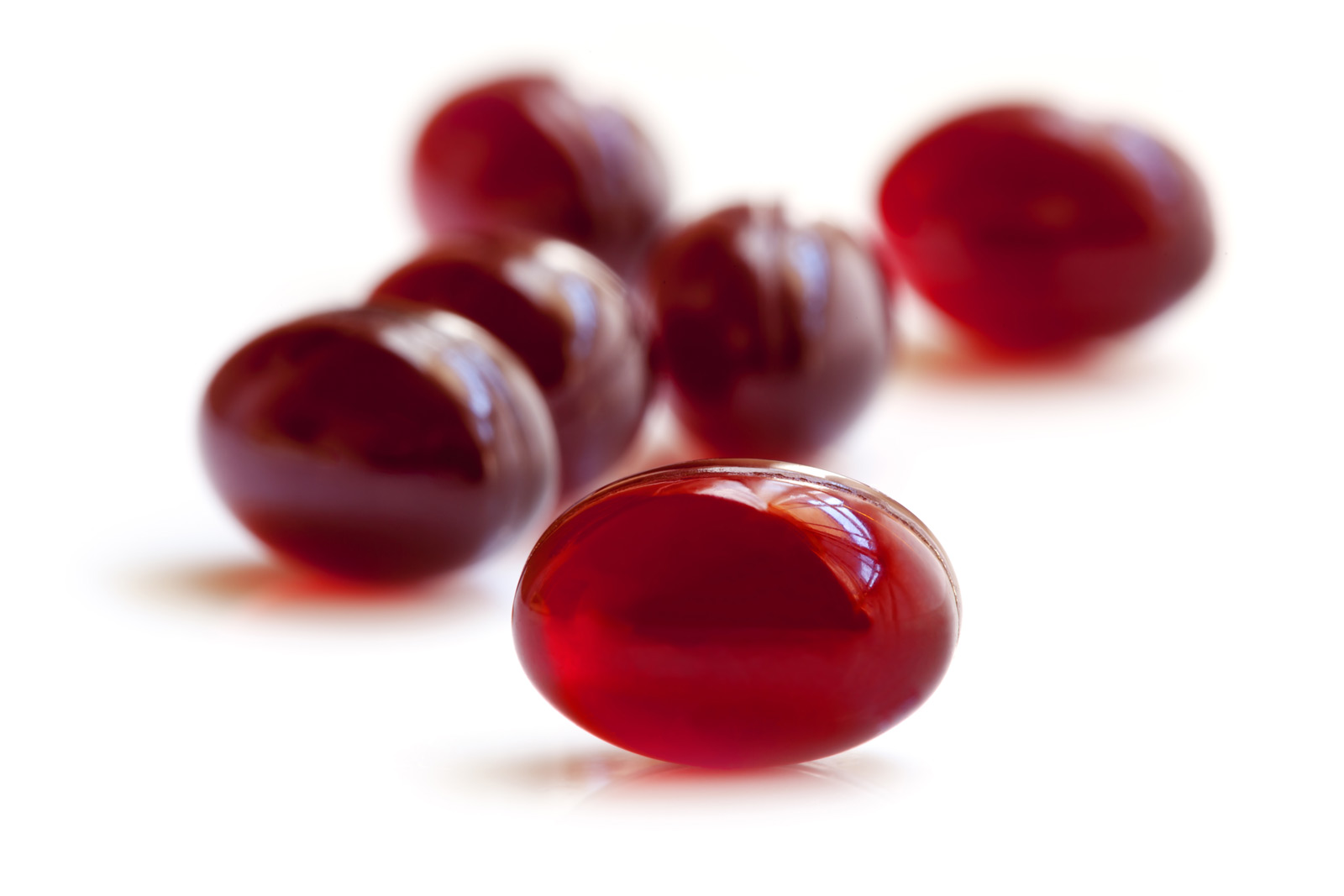- Home
- Blog
- Fats and oils
- Is Krill oil better than fish oil?
Is Krill oil better than fish oil?
Written by
on Wednesday, 03 February 2021.
Tagged: fats, fish oil, healthy cooking, healthy eating, krill, oil

This is a question I’m often asked. Especially as krill oil bounced onto the huge market of fish oil capsules with unbelievable claims such as "better absorbed" and "more powerful than fish oil". So, should you buy krill instead of fish oil despite its larger price tag? Take a look …
What is krill?
Krill (Euphasia species, mainly Euphasia superba) are tiny red crustaceans around 1 to 5 cm long found in the Southern Ocean around the Antarctic.
They look like small prawns (shrimp) and are the primary food for fish, whales, seals and penguins.
As fish stocks are being depleted, krill offers an alternative source of the valuable long-chain polyunsaturated fatty acids including eicosapentaenoic acid (EPA) and docosahexaenoic acid (DHA) that do our heart and blood so much good. Fish oil is a supplement I take regularly, so I was keen to know if krill is better or not.
How is krill oil manufactured?
The oil is extracted from krill by a cold vacuum process that protects the krill from exposure to heat, light or oxygen. Virtually all krill oil is produced by one Canadian company Neptune Technologies or Ocean Remedies and is sold on to oil encapsulator companies.

The 3 key benefits of krill
Krill has three things to recommend it:
- It has those same omega-3 fatty acids as in fish oil but in differing proportions. Krill oil has a lower concentration of DHA and EPA than fish oil - see table.
Side by side: How krill oil stacks up against fish oil
Figures per 1,000 mg of each oil
|
Capsule type |
EPA mg |
DHA mg |
Sum of EPA+DHA mg |
Astaxanthin mcg |
|
Krill oil |
108 |
60 |
168 |
75 |
|
Fish oil |
180 |
120 |
300 |
nil |
Source: from https://www.ncbi.nlm.nih.gov/pubmed/31201957
- In fish oil, the fatty acids are present mainly as triglycerides i.e. they have a backbone of a glycerol molecule attached to three fatty acids. In contrast, in krill oil, the fatty acids are mainly bound to phospho-lipids which matches the fats in our own cell membranes. Some companies claim that these phospholipid fats in krill oil give it a unique structure which makes it more effectively absorbed and therefore more “powerful” than fish oil. You have to weigh this up against the cost – per capsule, it’s only a tiny 10 cents for the fish oil while it hits a high of 60 cents for the krill oil. If you shop around you can find them for around 25 cents per capsule.
- Krill oil contains astaxanthin, an antioxidant. The algae that are eaten by krill produce a bright red pigment called astaxanthin that gives krill and other crustaceans such as lobster (crayfish) and prawns their reddish-pink colour. Astaxanthin is a carotenoid but is not converted into vitamin A as beta-carotene is. It is listed as a colouring agent with code number E161j by the European Commission. Astaxanthin is claimed to be a superior antioxidant, useful for its ability to relieve joint pain and inflammation in arthritis. Like other xanthins, there’s evidence that it has an ability to protect the skin against ultraviolet light and UV-induced skin damage. This astaxanthin appears to provide a significant stability to the krill oil.
Is krill oil better than fish oil?
It may be - but not by much. Not enough for me to recommend krill over fish oil, although fish oil has a higher concentration of DHA and EPA than krill oil and is cheaper.
Remember that there are only a handful of studies on krill oil but thousands of studies on fish oil since the 1980s. We know a lot more about fish oil than about krill.
Its great advantage is that it’s absorbed better and you will need less to get the same effect. But then you could just as well take two super-concentrated fish oil capsules and still be ahead for money.
Another advantage is that generally krill oil capsules are smaller and easier to swallow than fish oil.
Unknown – how long it’s been sitting there
The only unknown is how long it has been sitting around in a warehouse somewhere, which is, of course, the same unknown with fish oil. At least with krill oil, thanks to the high antioxidant content, the shelf life is much longer.
People with allergies to seafood shouldn't use krill oil
Krill are a shellfish so krill oil is a potential allergen. Like fish oil, krill oil thins the blood so consult your doctor in regards to taking krill oil prior to operations.
The bottom line
Both fish oil and krill oil are reliable sources of omega-3s, even if the EPA + DHA dose in the krill oil is only about 60 per cent of that in the fish oil. Krill oil appears to have a health edge over fish oil because it may be more bioavailable, but it’s also more expensive and not well-studied. You can make up your own mind which you prefer to buy.
I hope this short extract from my ebook "Fish Oils & Omega-3s” will help you understand the difference between fish oil capsules and krill oil capsules. If you want to learn more about fish oils and their uses, grab yourself a copy from the Foodwatch shop. It lists and explains the most common terms, compares popular brands of capsules and reveals the key considerations in choosing the most beneficial fish oil for you. To buy your copy of the ebook, click here.
Jemma O'Hanlon
The Good Stuff
The Boring Stuff
© 2025 Foodwatch Australia. All rights reserved
Website by Joomstore eCommerce






